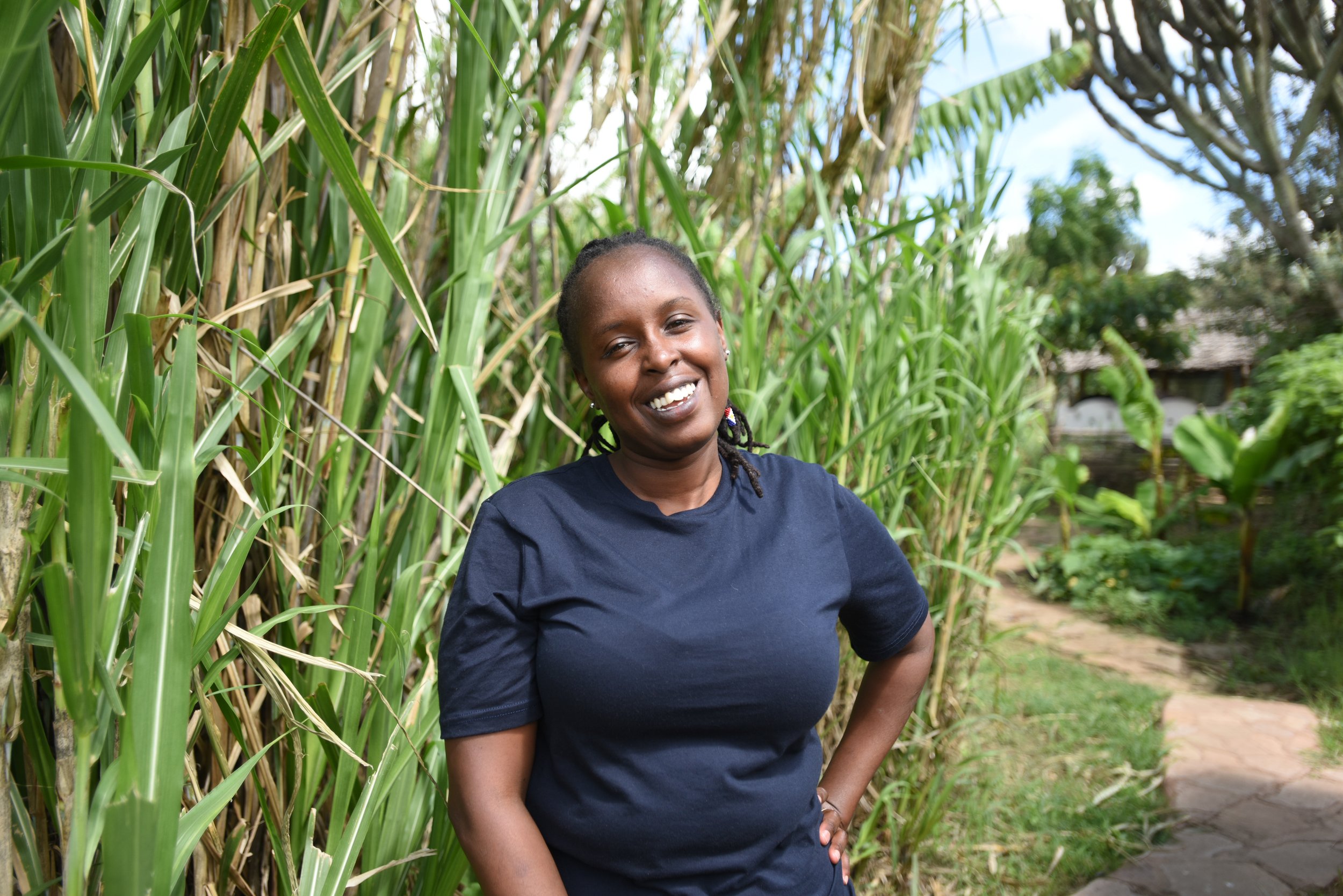
More Than ‘Just A Farm’
Increasing Food Security and Quality of Life Among At-Risk Maasai Communities
The traditional Maasai livelihood in East Africa is threatened by climate change-induced droughts, leading to starvation, disease, and poverty as their livestock suffers. To address this crisis, Bomanoma, co-founded by a Maasai woman, combines modern ingenuity with regenerative agriculture to provide a year-round source of nutritious organic food. The permaculture-based approach, implemented in the heart of Maasailand, empowers the community with self-sufficiency and financial opportunities while preserving their culture and heritage. Bomanoma's demonstration farm has already proven successful and encourages other communities to establish their own permaculture farms through education and support. The farm focuses on sustainability, using solar power, rainwater harvesting, composting, and recycling to achieve our goals of sustainable living.
👇🏾 Read More Below 👇🏾
The Challenge
The onset of climate change causing increased prolonged droughts throughout East Africa put the traditional Maasai livelihood of nomadic pastoralism at great risk. Without predictable rainy seasons and the ongoing depletion of once fertile grazing lands, the livestock which the Maasai people depend on are subject to starvation, disease, and death. The direct correlation between the health of the livestock and the health of the Maasai human population means that the Maasai are in danger of malnutrition, illness, violence over diminished grazing lands, lower education rates, higher rates of early childhood marriage and female genital mutilation (FGM), and extreme poverty. At the same time, monocrop farming using chemicals, pesticides, and herbicides like glyphosate while only increase diseases like cancer and autism while forcing the farmer to rely on genetically modified seeds sold to them at an exaggerated price by the same companies who produce and sell the chemicals; a vicious, dangerous, and inescapable cycle of disease and poverty.
The Solution
The only way to rectify the worsening situation is to integrate modern ingenuity and regenerative agriculture into traditional Maasai lifestyle. This solution provides the Maasai community with a nutritious, organic, and delicious year-round source of food which will empower them to thrive in all other aspects of their lives, without sacrificing their rich heritage and history which is renown throughout the entire world. Excess harvest can be sold at local markets to generate financial profits, while regenerative agriculture itself revitalizes the earth’s eco-systems and creates a healthier environment.
We have established a 100% organic farm, incorporating both permaculture designs and a system of Syntropic Community Farming in Semi-Arid Climates. Our farm bridges the gap between the traditional lifestyle of Maasai nomadic pastoralists and the need for food security in an uncertain world. Nestled within a semi-arid environment, mono-crop farming would be impossible without the use of chemical pesticides and herbicides. Through hard work and dirty hands, we planted a variety of crops, trees, flowers, medicinal plants, and spices. Our farm boasts tree nursery and area to plant seeds protected by a shade net that blocks 90% of the sun’s rays, and an herb garden containing many spices which are used everyday in the kitchen.
Bomanoma, co-founded by a Maasai woman and located in the heart of Maasailand, boasts a demonstration farm site for the Maasai people to learn about how to use agriculture to increase food security and therefore quality of life. Co-founder Selina Nkoile uses her extensive knowledge and experience in permaculture design to create food forests that become oases of abundance even in the semi-arid environment in which most Maasai communities reside. Permaculture, defined as conscious design and maintenance of agriculturally productive ecosystems which have the diversity, stability, and resilience of natural ecosystems, is an implementable, replicable, and scalable method of farming within the Maasai community due to their abundance of land. By combining permaculture design practices with organic farming and regenerative agriculture, the Maasai will return to be self-sufficient in their food production and not at the mercy of climate change, drought, political instability, or globalization.

Join our virtual farm tour with over 1.2 MILLION views!
Bomanoma’s farm has already proven to be a successful solution to the hunger crisis plaguing the Maasai community - a crisis which is only getting worse. Bomanoma encourages and empowers local communities to establish their own permaculture farms through programs such as: seed sharing, permaculture knowledge workshops, farm design courses, and on-the-ground support. By incorporating permaculture farming into their lifestyles, the Maasai can become self-sufficient and free themselves from the cycle of poverty currently holding them back. Continuing to keep livestock while also embracing regenerative agriculture will give the Maasai community the food security, education opportunities, and quality of life they deserve; all while maintaining their rich culture, heritage, and traditional lifestyle values.
Sustainability is a major focus at Bomanoma, both throughout the eco-lodge and on the farm. We collect and harvest rainwater, rely 100% on solar power, compost food waste to recycle back into the farm, have 14 bee hives on the property, and re-use single use plastic and glass bottles as water feeders for the crops. Our farm is the backbone of Bomanoma’s sustainable living goals. Guests at Bomanoma are welcome to help in the farm.
🌳🍑🌸🌿🌽 Click here to see the complete list of biodiversity found within our farm! 🍉🥬🍅🥕🌴
We offer farm tours! Contact us for more information.

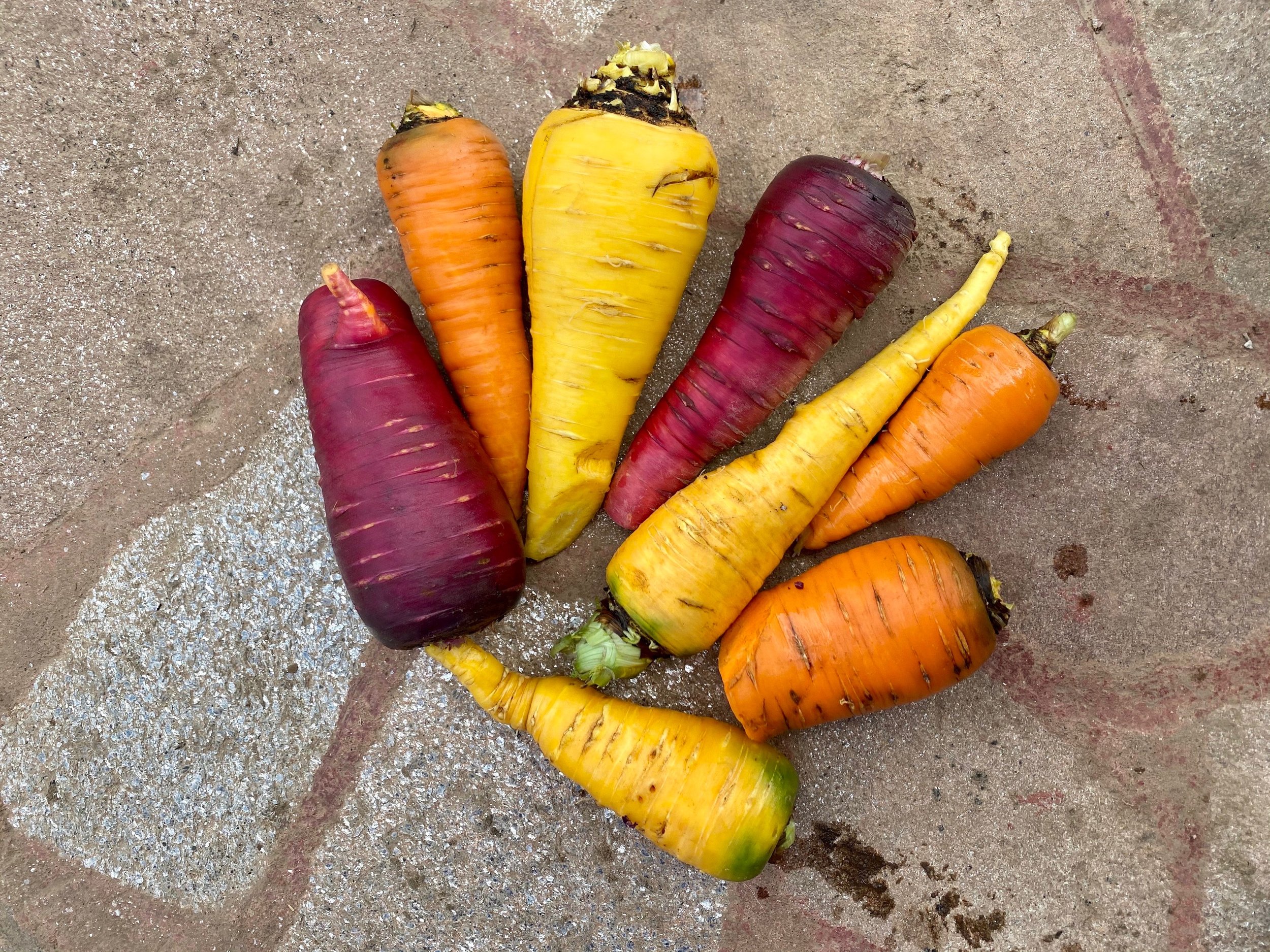


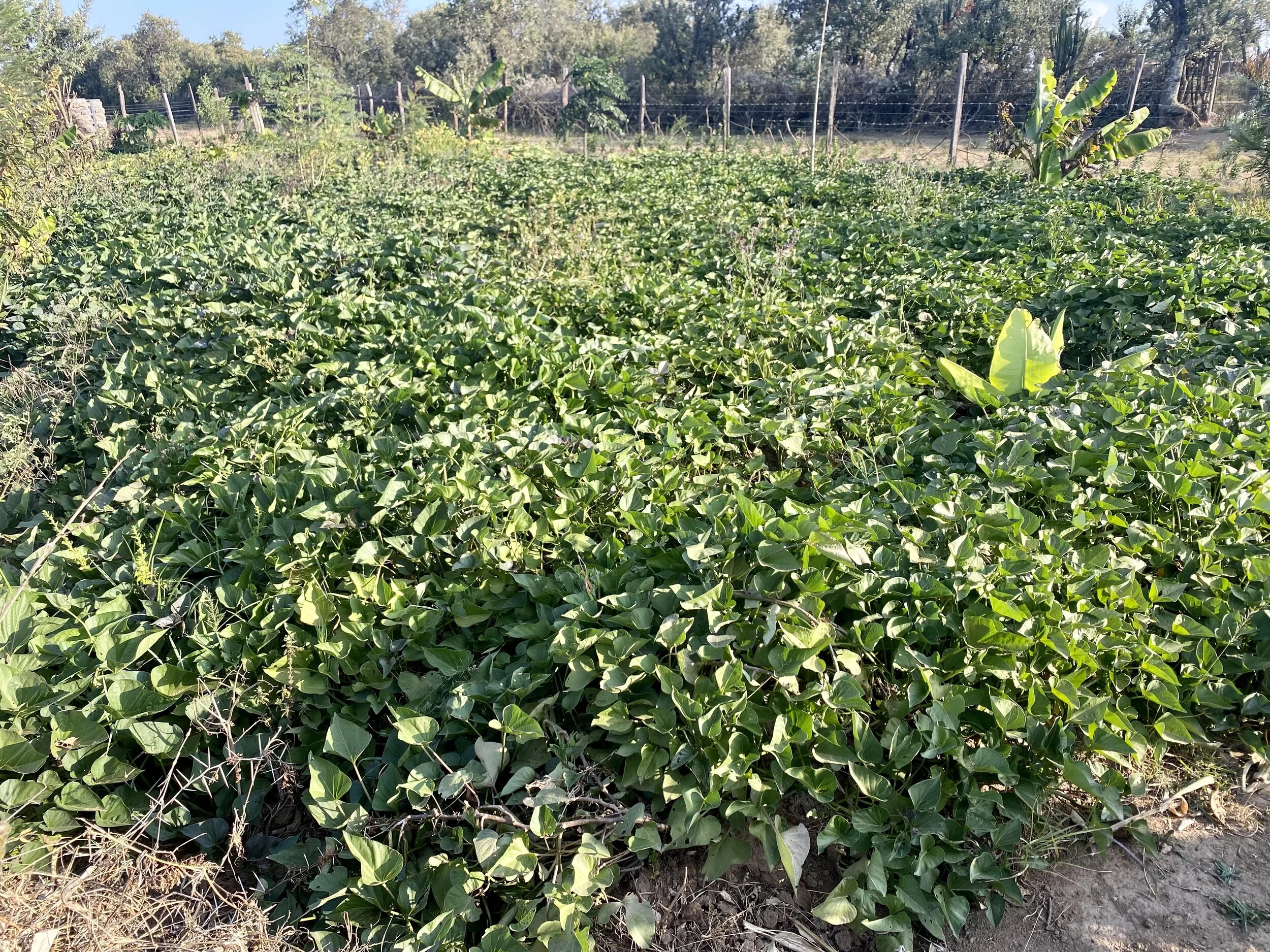



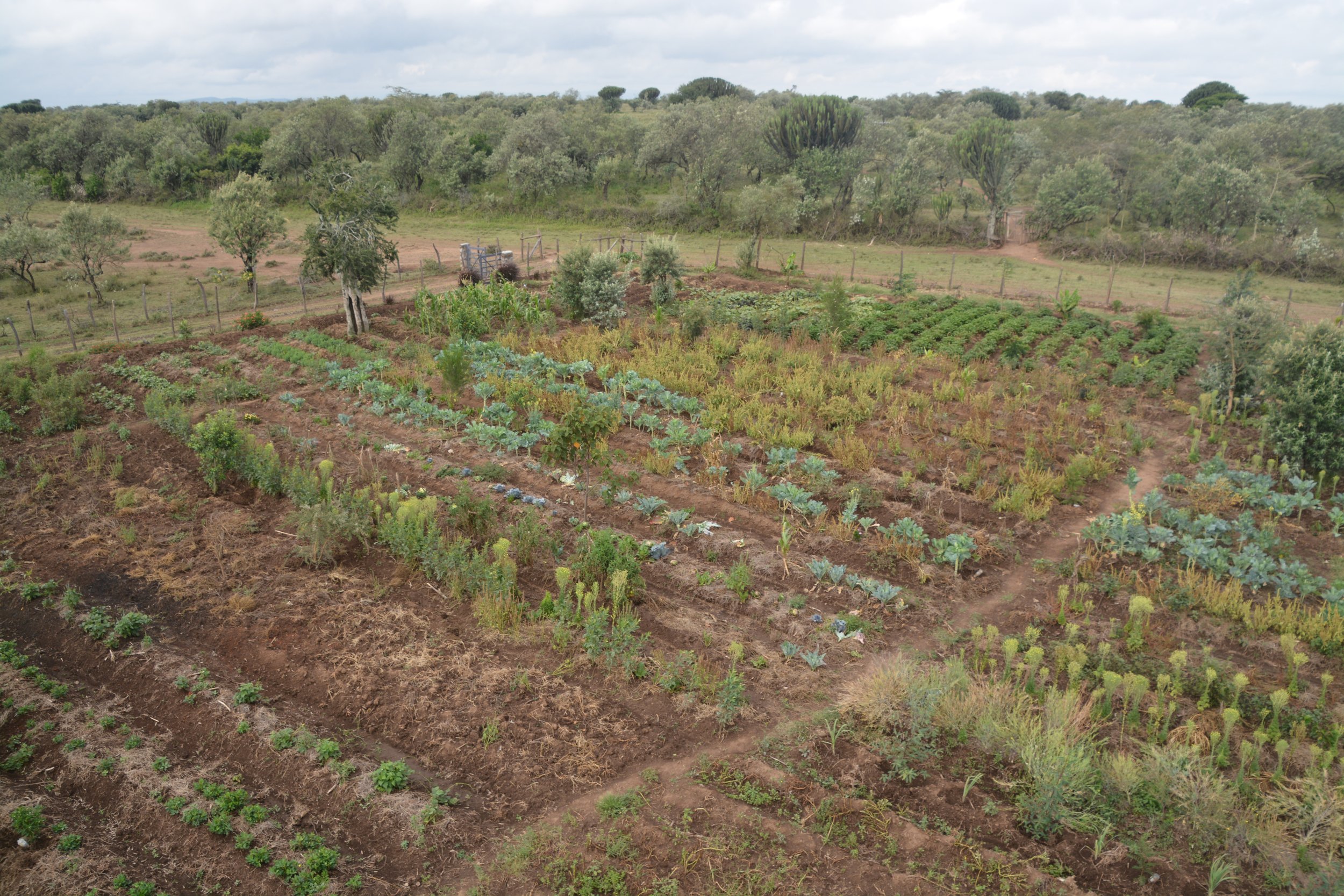






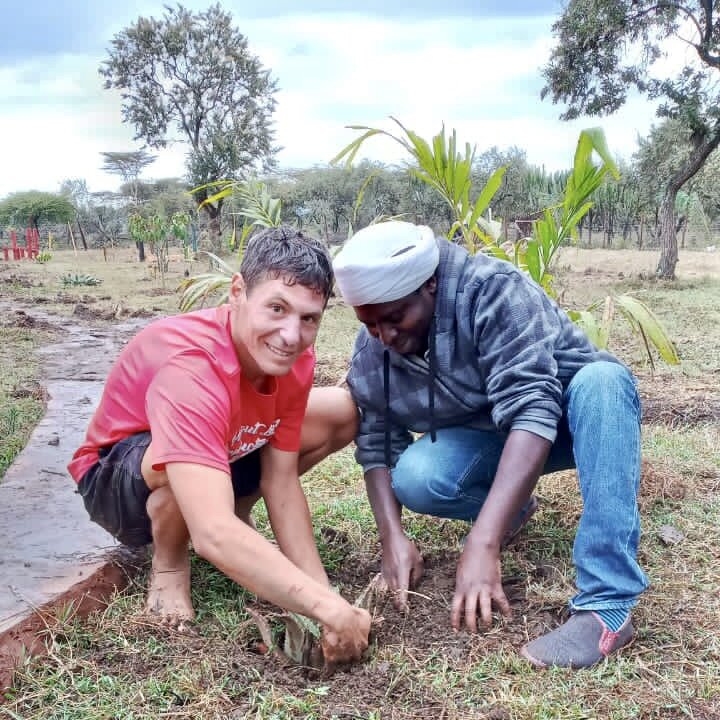

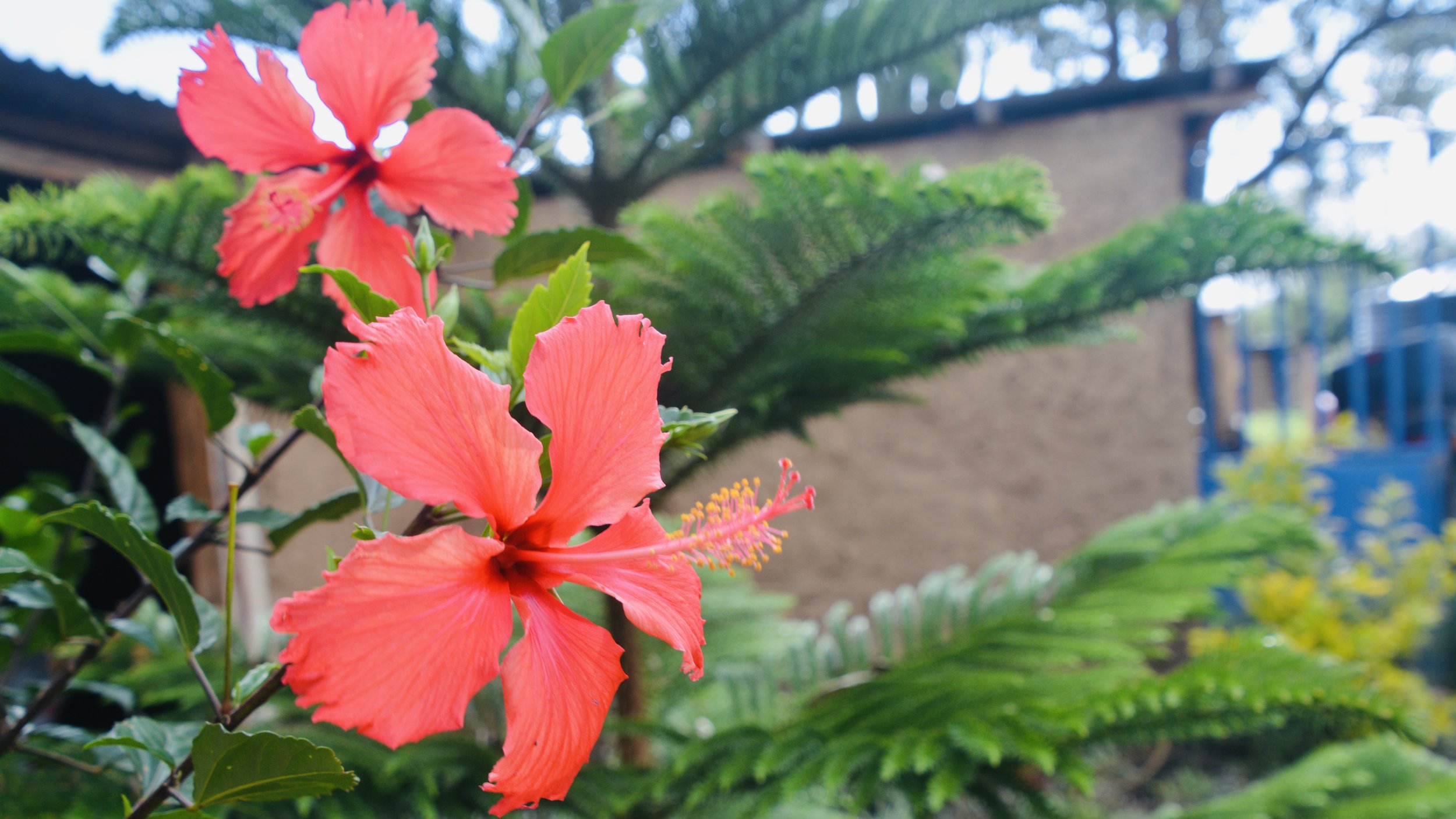







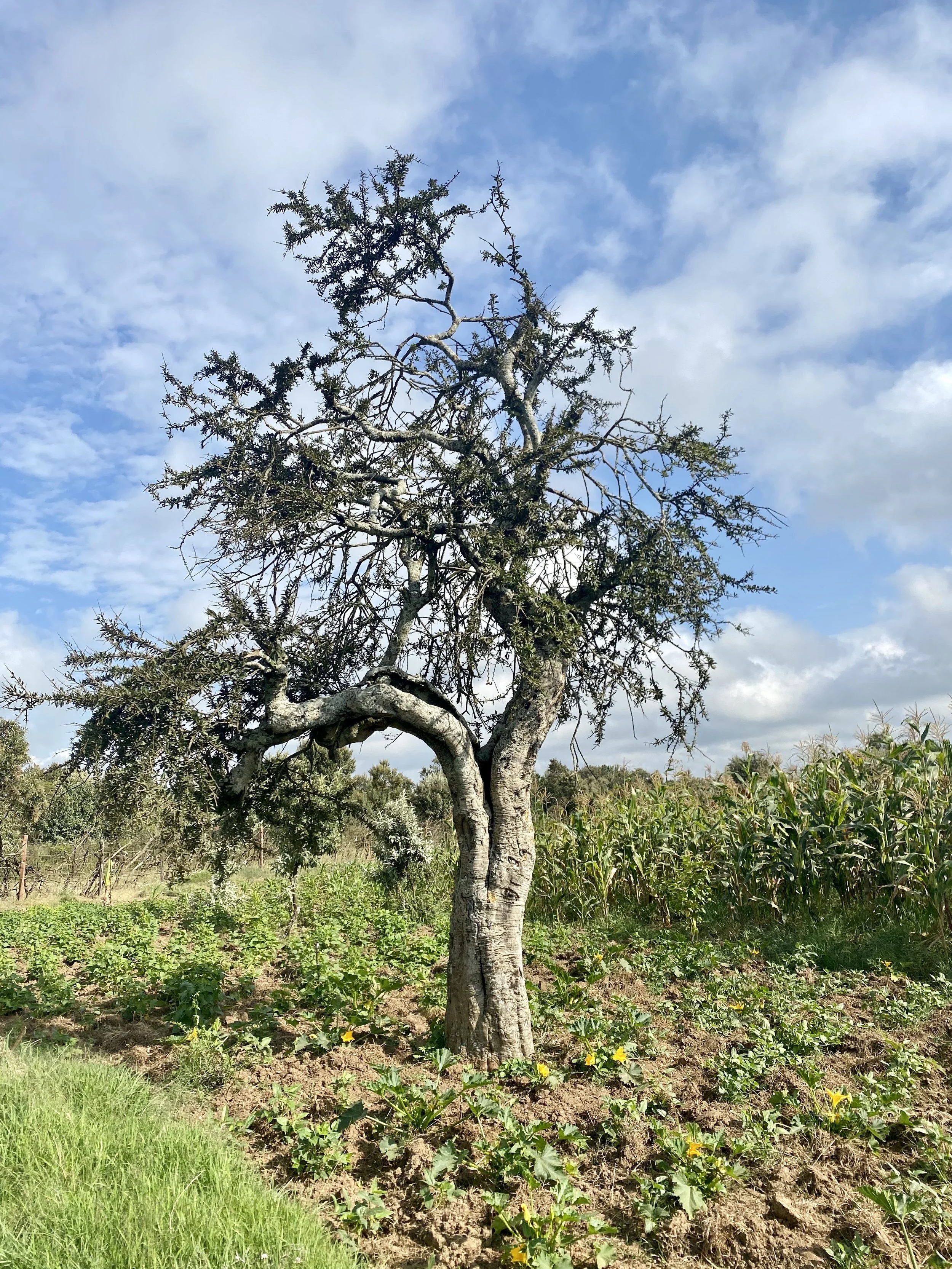



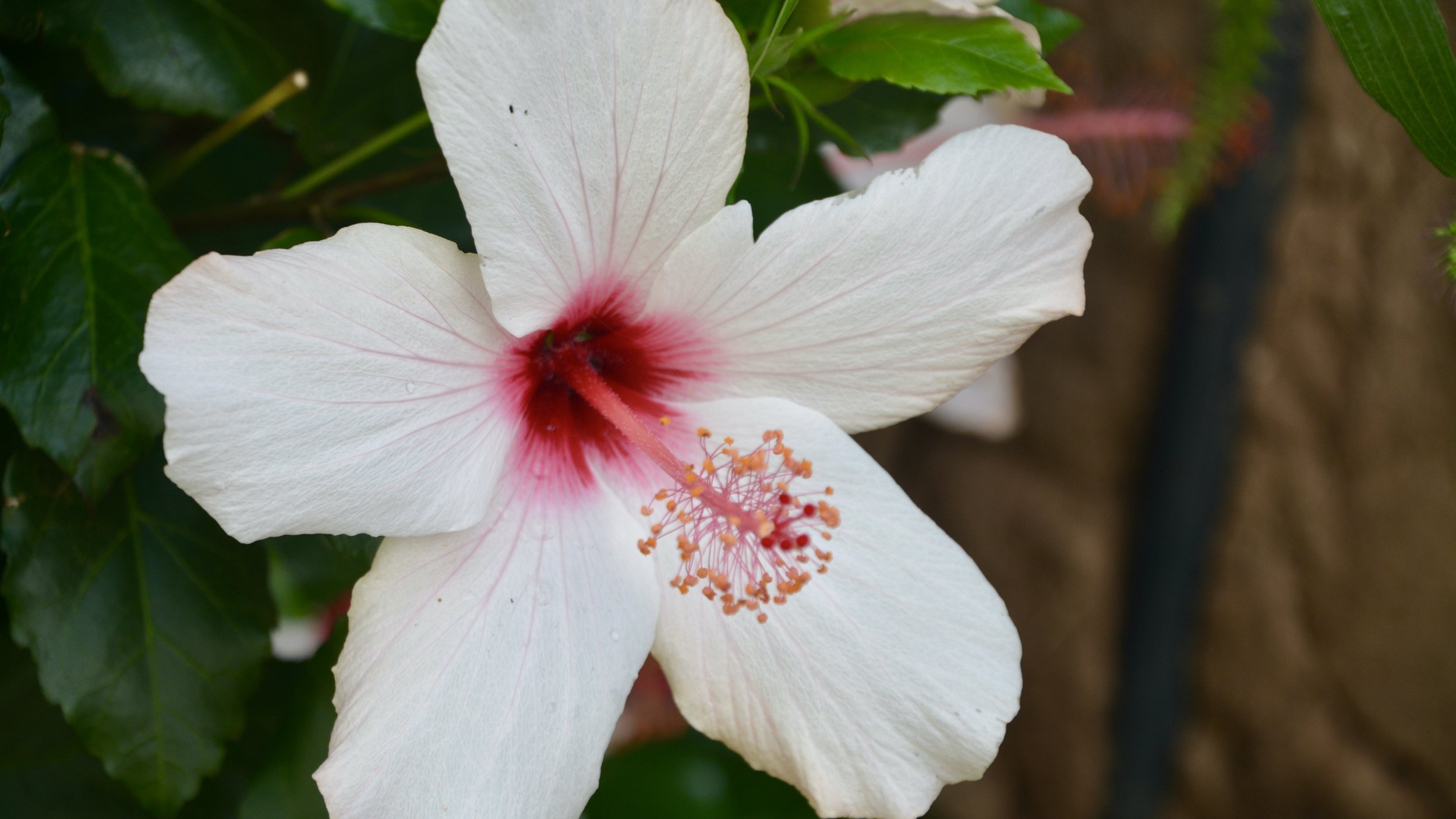
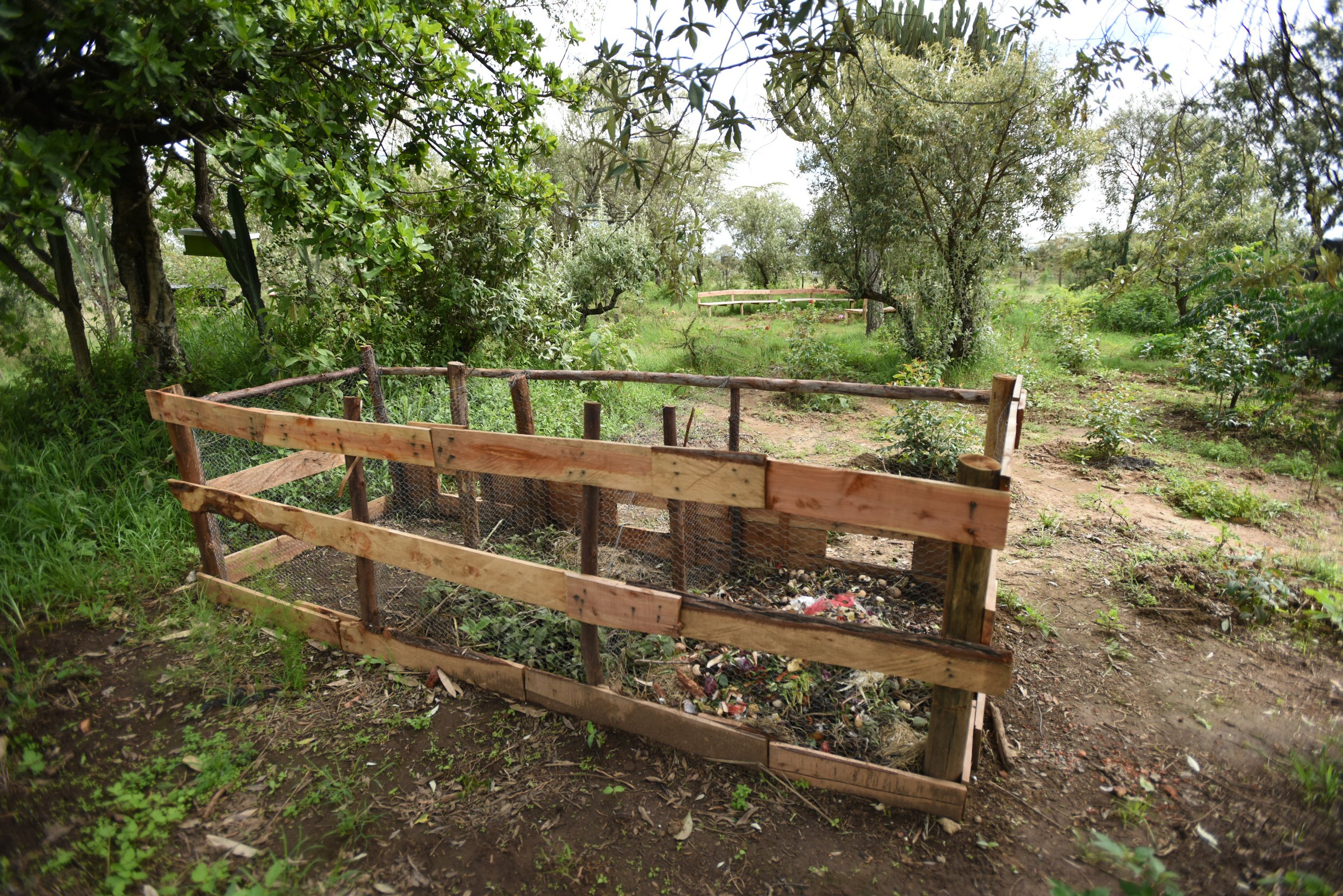
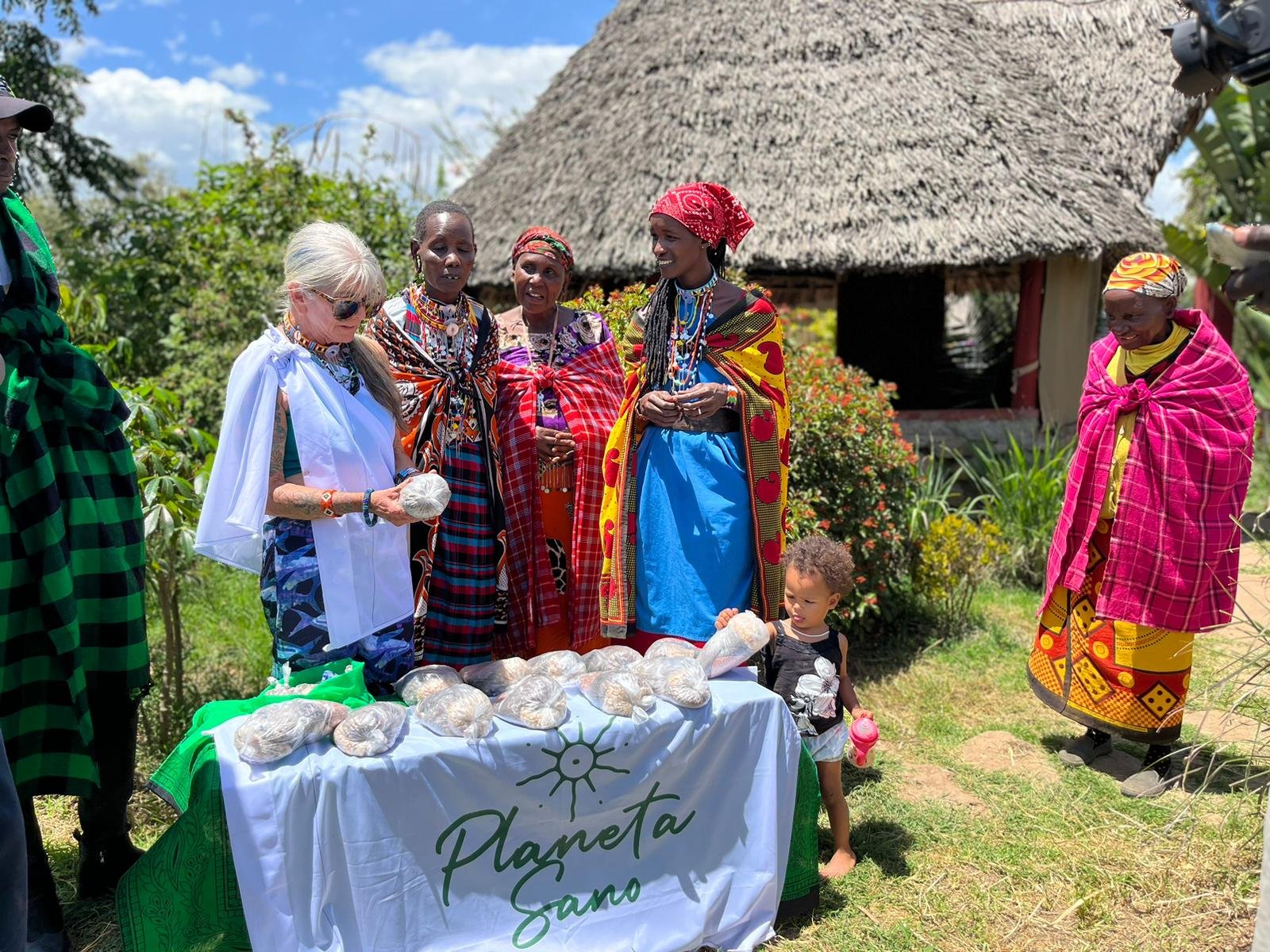

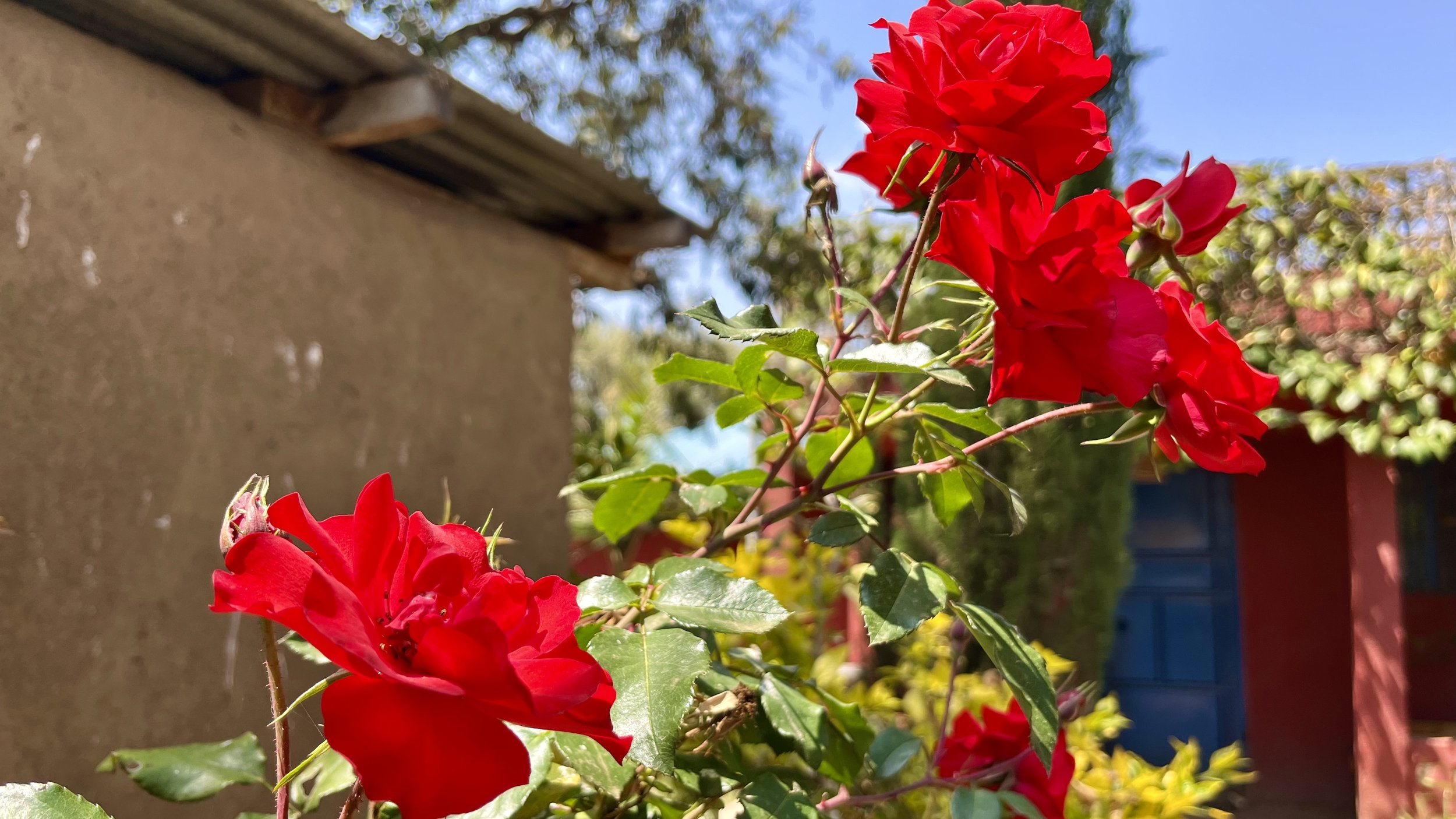
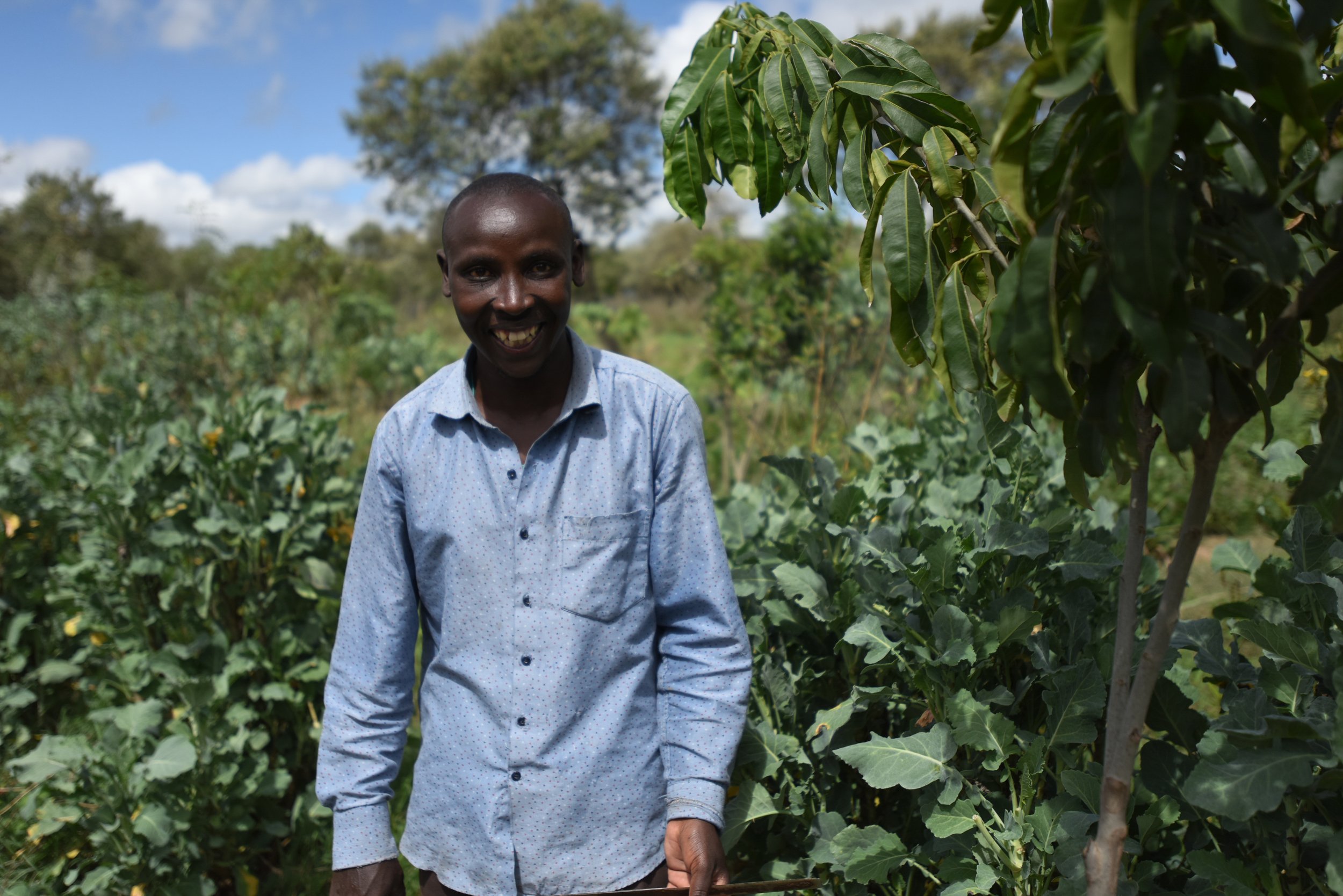




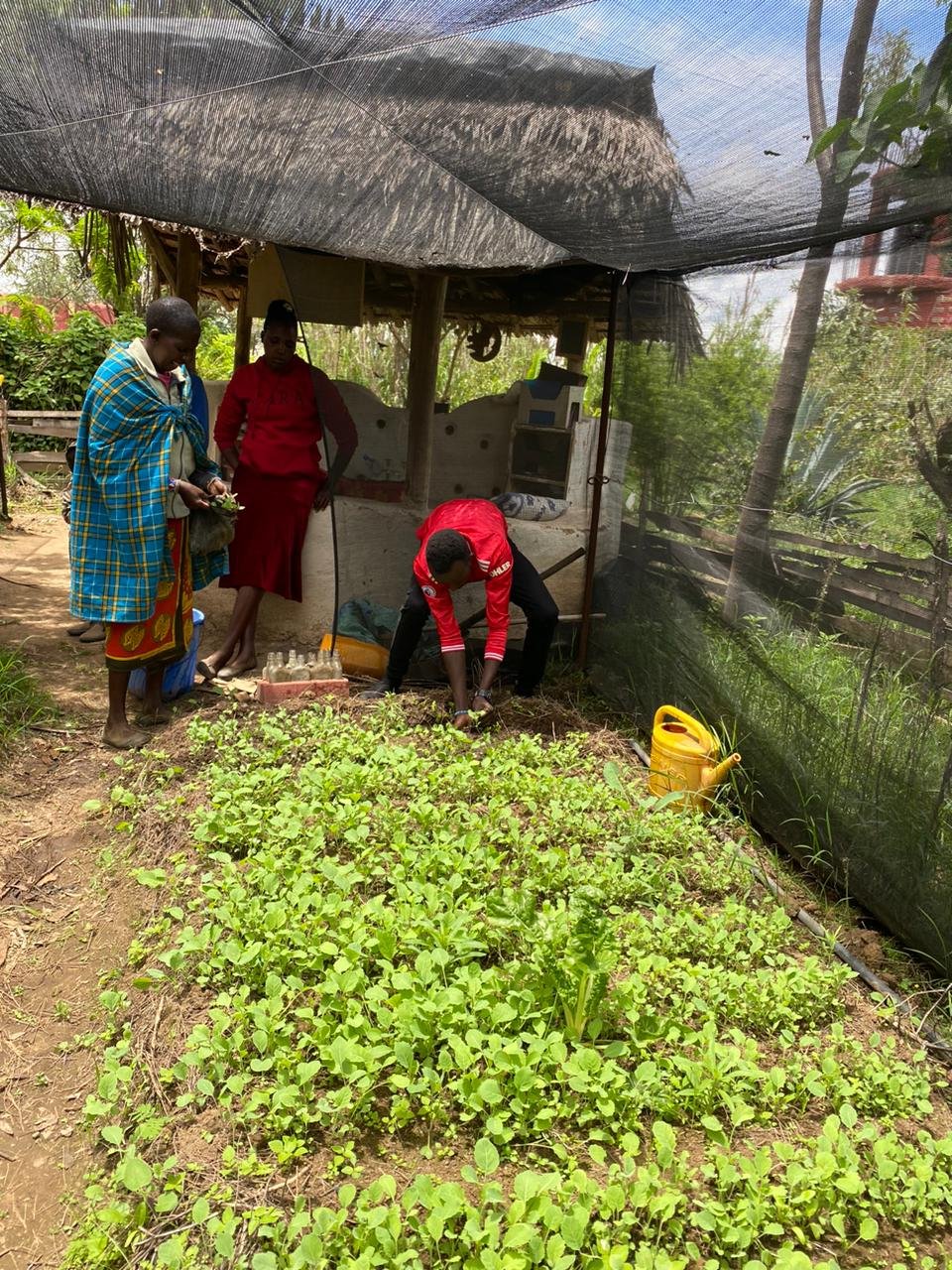
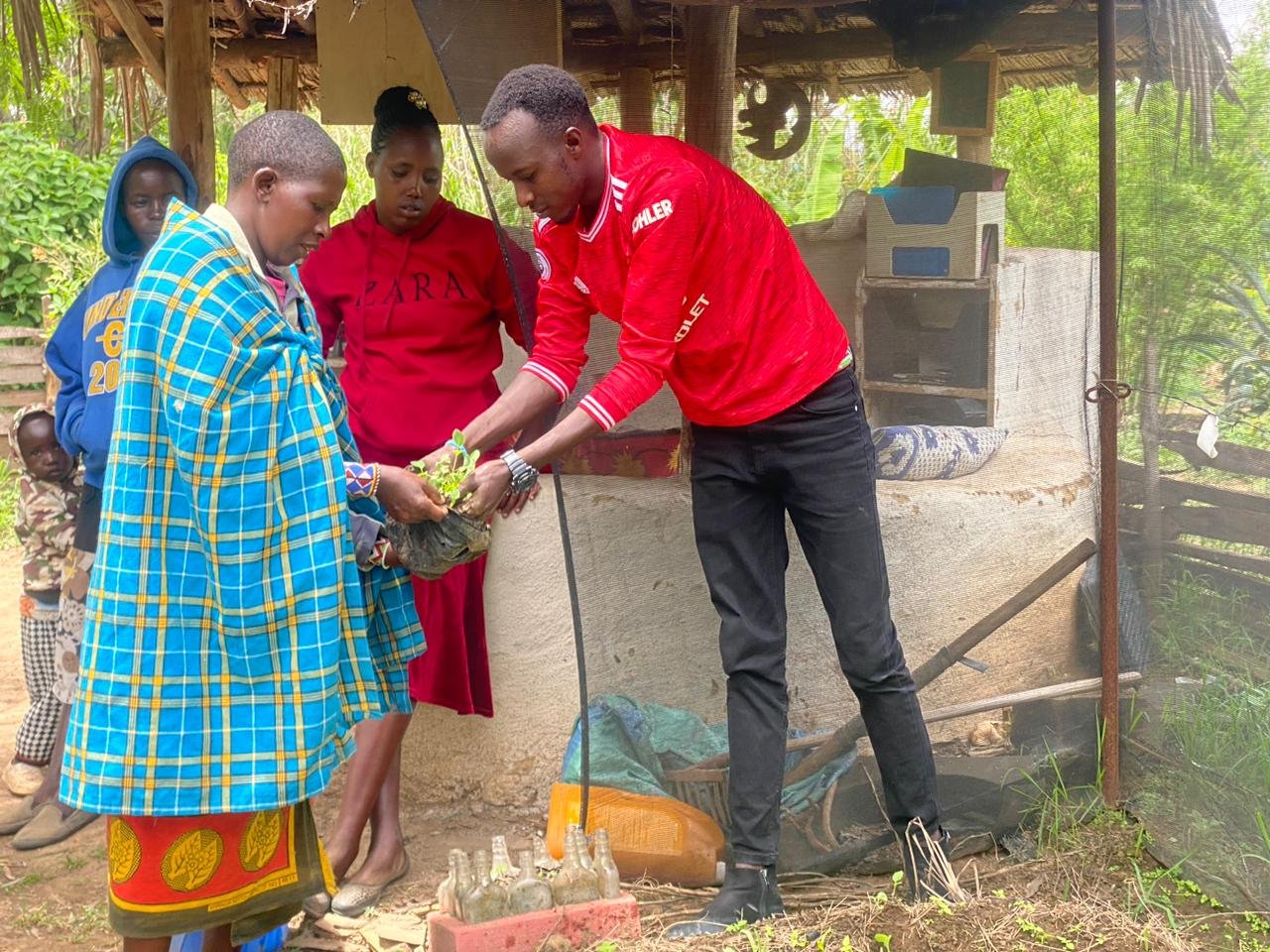
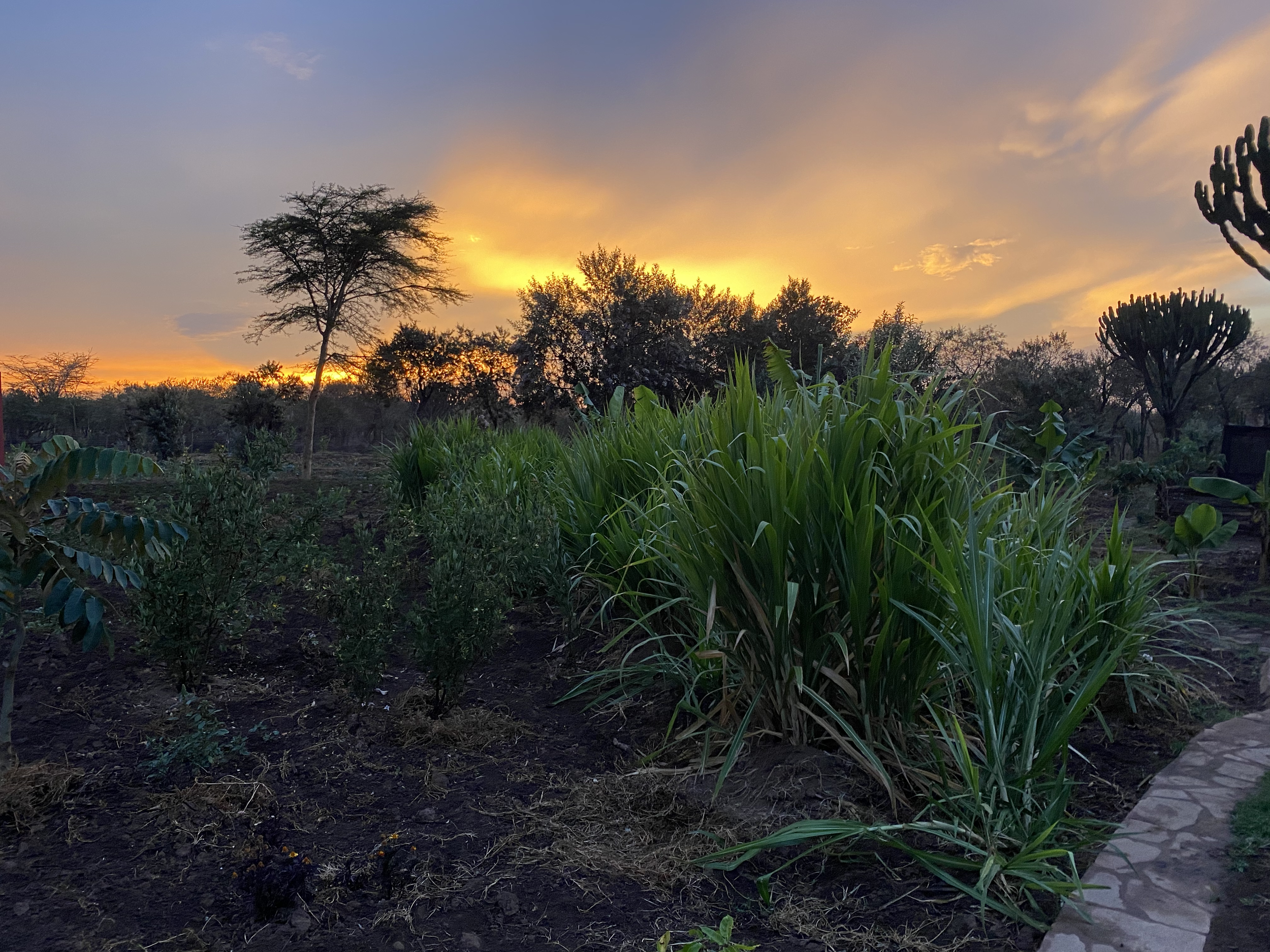
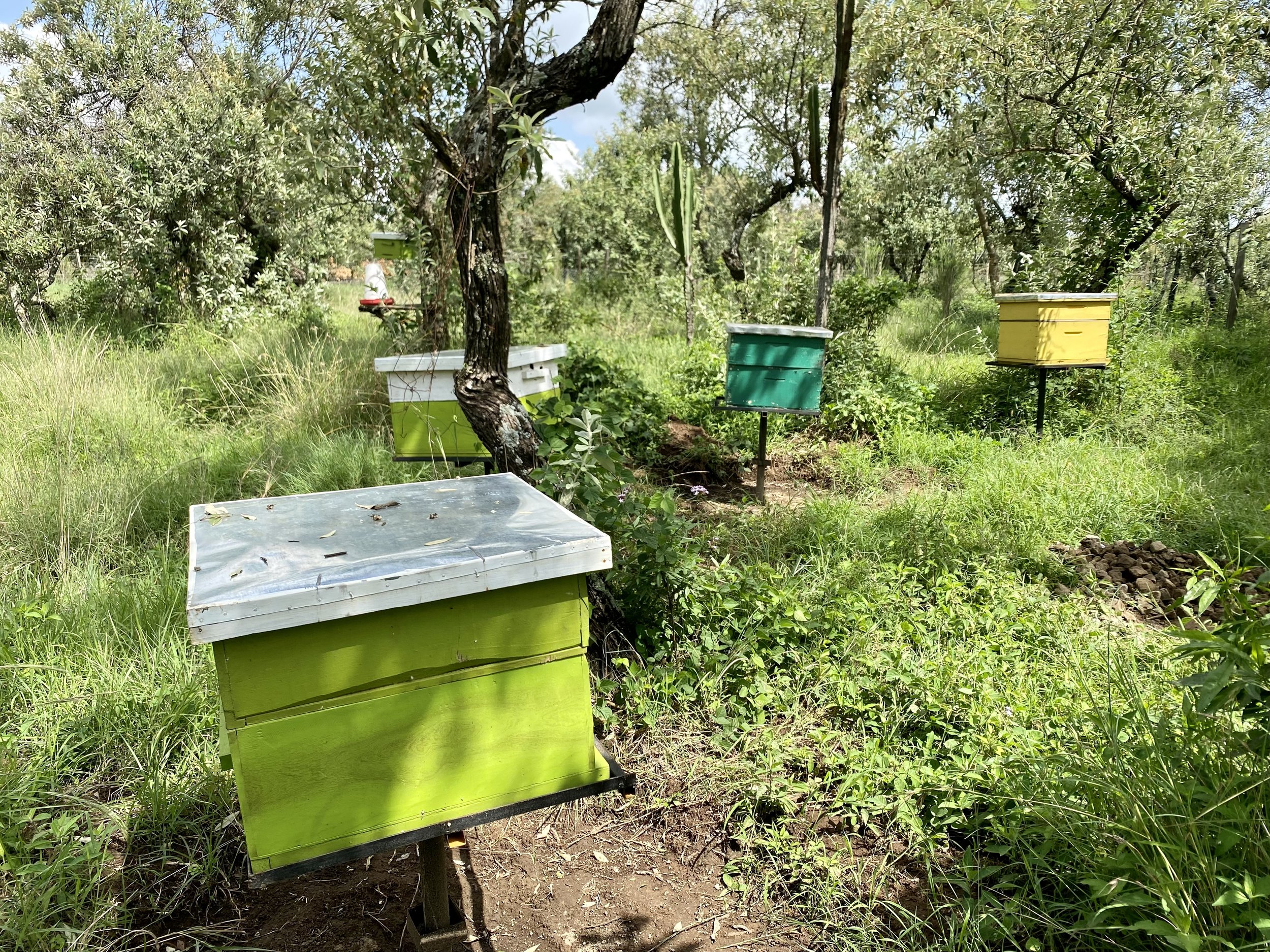



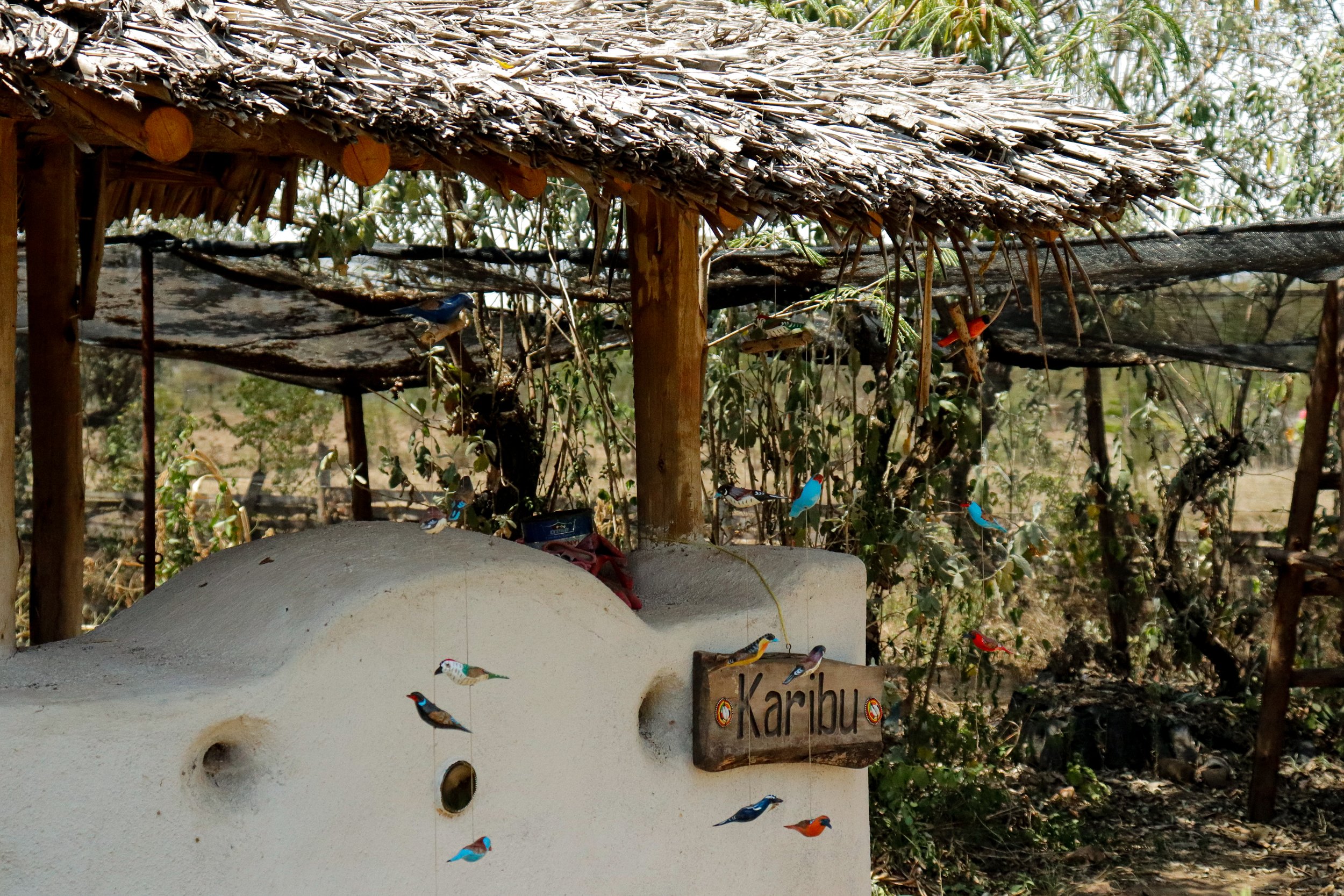


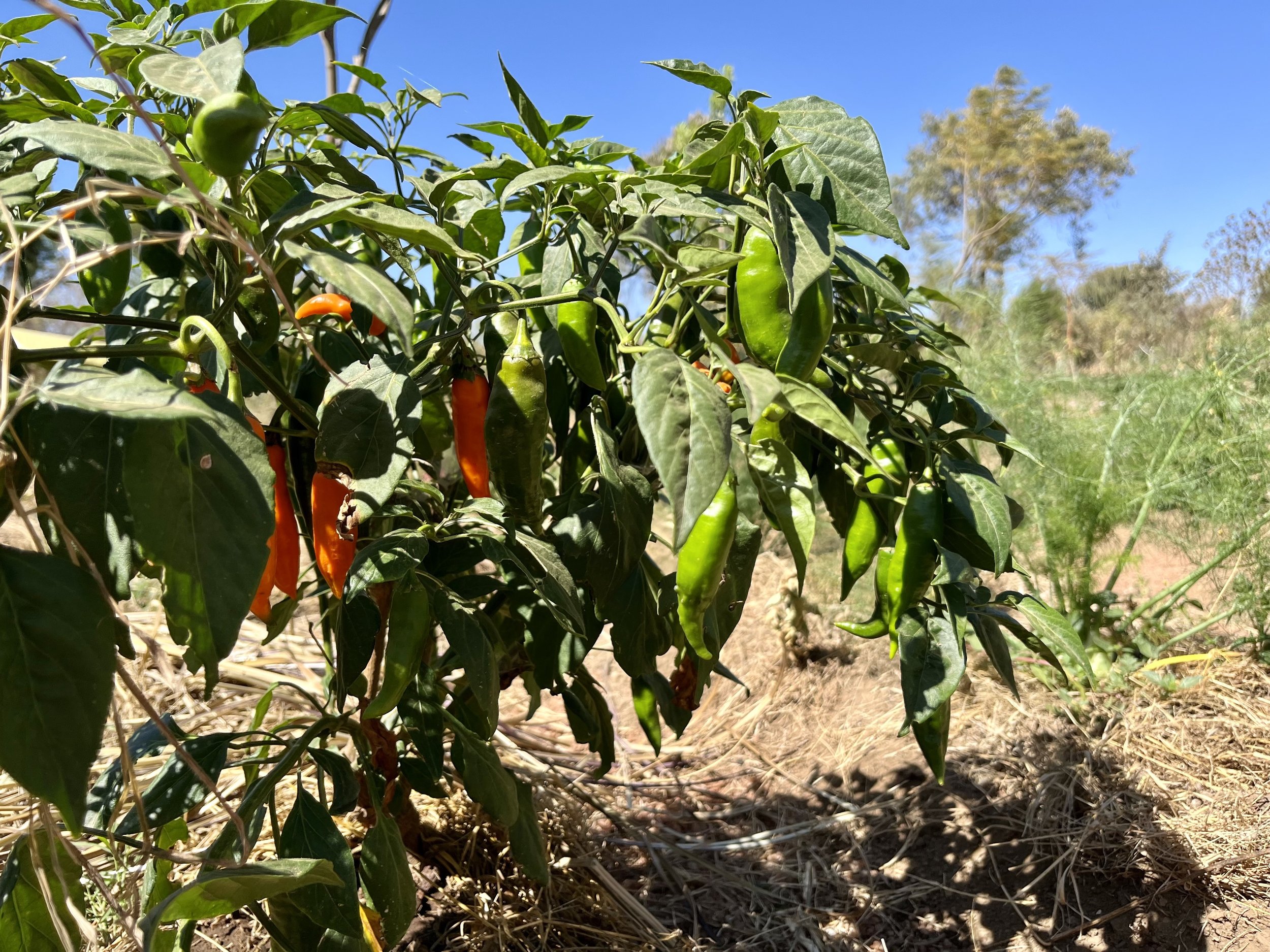
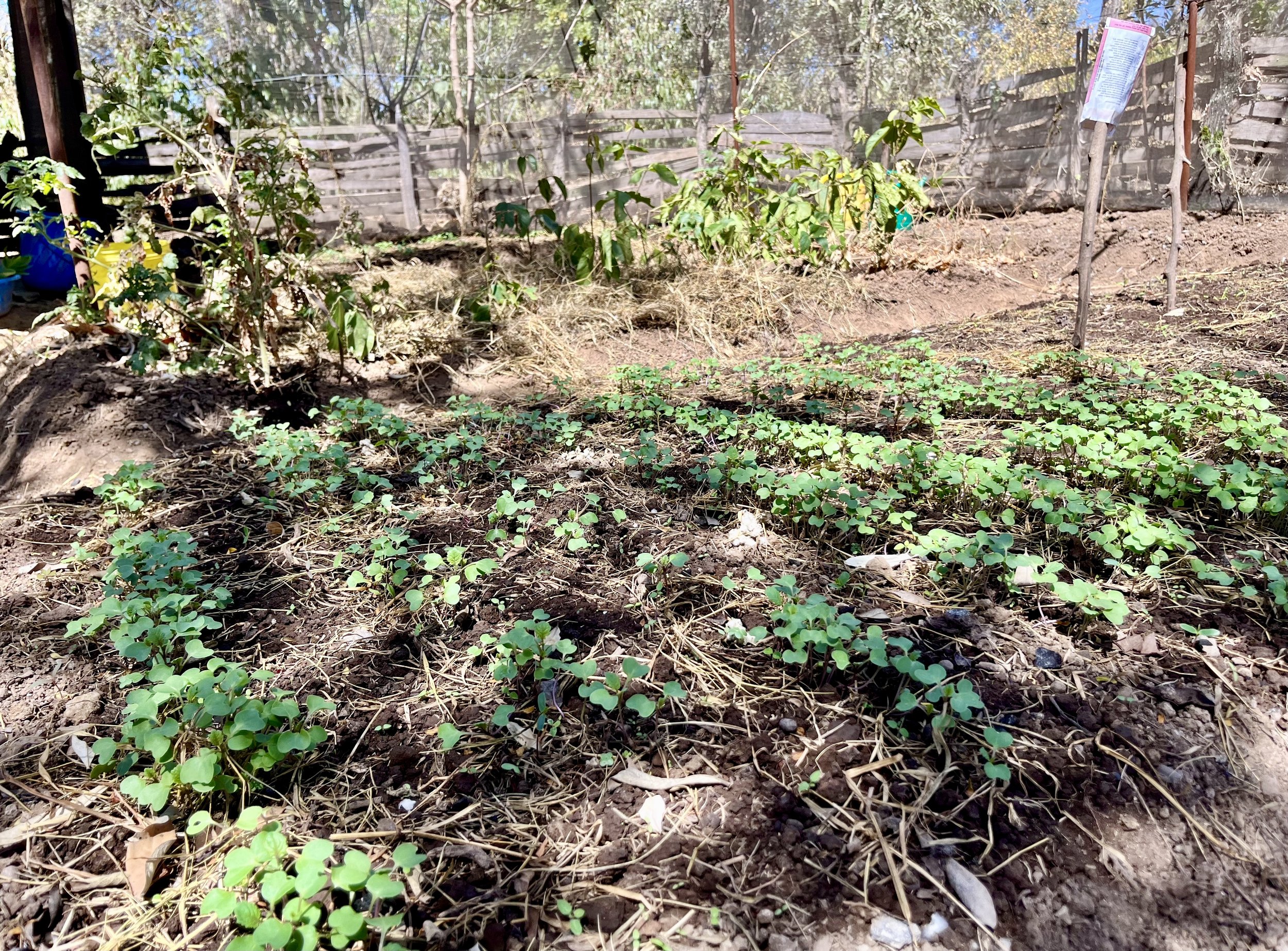




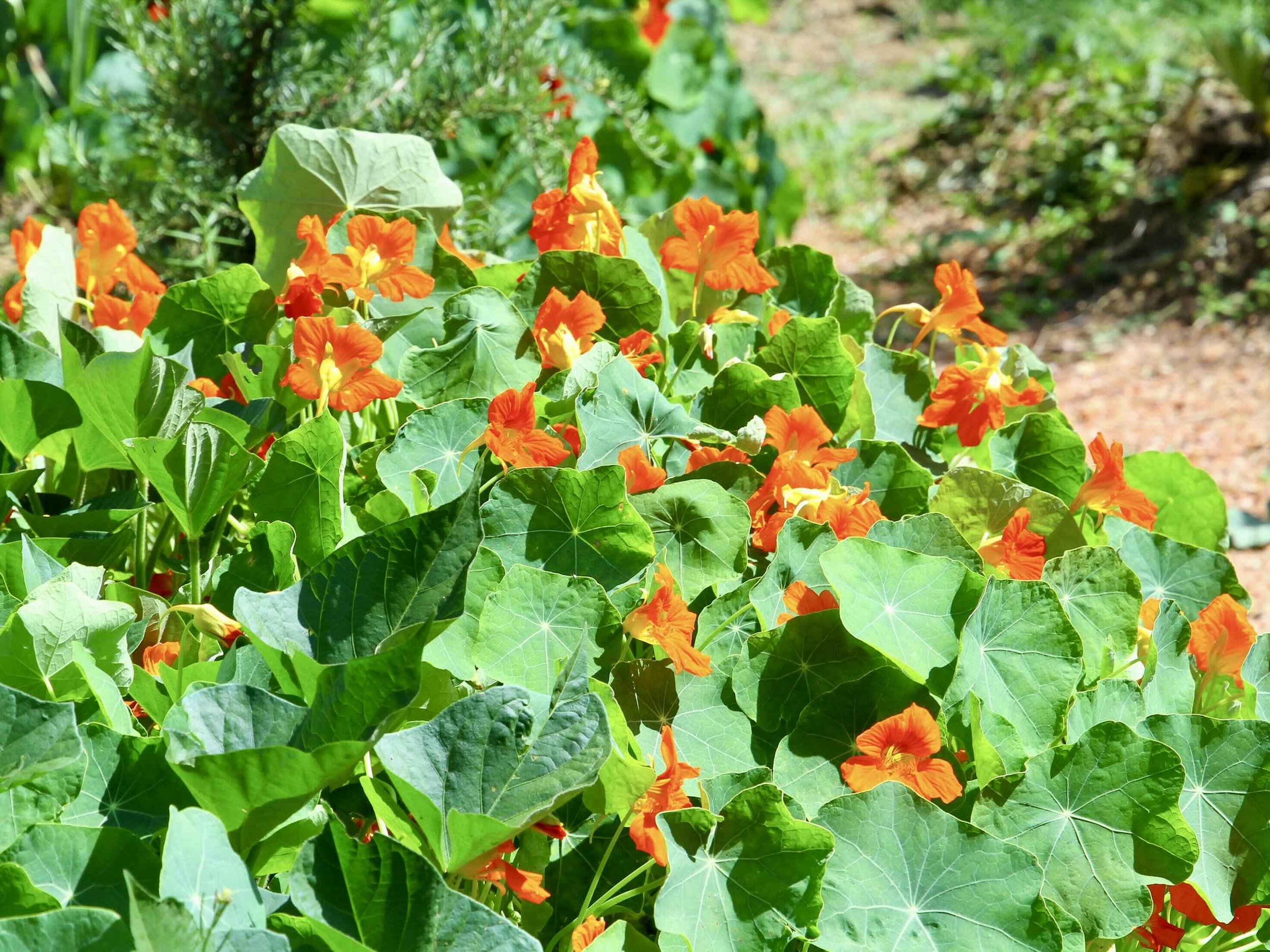

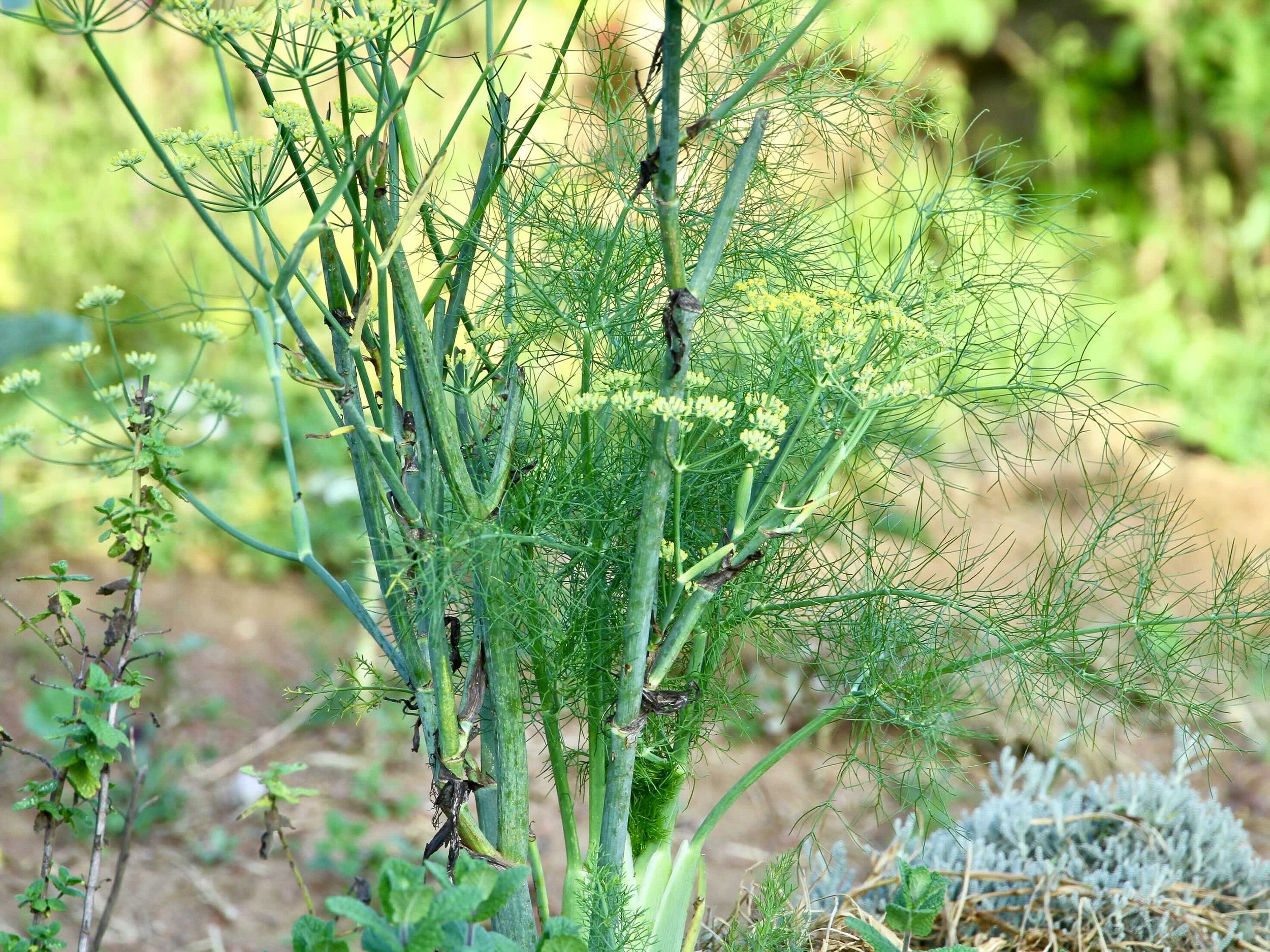



Bomanoma’s farm is 100% organic and (subject to season) includes:
🍊 Fruits 🍉
Purple passion fruit, Apple, Avocado (parachichi), Mango (maembe), Banana (ndizi), Papaya (papai), Sugarcane (miwa), Loquat, White sapote, Strawberry, Lemon (ndimu), Pink lemon, Lime, Orange (mchungwa), Plum, Tangerine (sandara), Tree tomato (matunda damu), Pomegranate, Soursop (guanabanana), Huckleberry, Jackfruit, Guava (mapera), Olive, Fig, Kei apple, Dragon fruit, Coconut, and more.
🌿 Herbs 🍀
Lavender, English lavender, Lemongrass, Spearmint, Chocolate mint, Peppermint, Marjoram, Hibiscus, Rosemary, Thyme, Basil, Sage, Fennel, Parsley, Coleus barbatus (ormeigwaya), Cilantro/coriander, Jasmine, Aloe vera, Fire bush, Ginger, Turmeric, Bird’s eye chili pepper, Jalapeño, Habanero, Scotch bonnet, Bishop’s Crown, Lemon balm, Oregano, Sweet-scented geranium, Lemon verbena, St. John’s wort, Santolina (lavender cotton), and more.
🌲 Trees 🌴
Morigna (moringa oleifera), Red cedar (mutarakwa), Italian cypress (cupressus sempervirens), Royal palm (roystonea regia), Bottle palm (hyophorbe lagenicaulis), White pondo, Tipuana tipu, Croton, Ugandan greenheart (sokonoi), Wild sage (oleleshwa), Acacia (olerai), Gum arabic, Whistling pine, White bottlebrush, Red bottlebrush, Mastic (pistacia lentiscus), Cape lilac (mwarobaini nusu), Finger euphorbia, Candelabra (euphorbia ingens), Australian umbrella (schefflera actinophylla), Jakaranda, Ormesigiyoi (rhus nantalensis), Japonica, Candlenut, Grevillea, Ficus, Cyprus, African cherry (prunus africana), Bamboo, Java plum (syzygium cumini), Oltingararia, Thika fern (filicium decipiens), Golden cane palm (chrysalidocarpus lutescens), Blue gum (eucalyptus globulus), Arak (salvadora persica), Sycamore, Teclea (vepris nobilis), African Tulip (nandi flame), Oirri (grewia tembensis), Bird of paradise (strelitzia nicolai), Monkey puzzle (araucaria araucana), Fiddle-leaf fig (ficus lyrata), Mexican fan palm (washingtonia robusta), Seaforthia palm (archontophoenix cunninghamiana), Fishtail palm (caryota mitis), Parasol (polyscias kikuyuensis), Norfolk Island pine (araucaria heterophylla), and more.
🌽 Crops & Vegetables 🥕
Maize (mahindi), Rose coco beans (maharagwe), Pigeon peas (mbaazi), Black beans (njahi), Climbing beans, Casava (muhogo), Kale (sukumawiki), Spinach, Lettuce, Cabbage, Quinoa, Potatoes, Sweet potatoes, Okra, Cherry tomatoes, Arrow root (nduma), Chia, Carrots, Beetroots, Peanuts, Coffee, Khat (miraa), African nightshade (managu), Spider plant (saget), Purslane, Amaranth (terere), Cow peas (kunde), Nasturtium, Pumpkin (malenge), Squash, Zucchini, Spring Onion, Lentils, Mung beans, Napier grass, Malabar spinach, Asparagus, Leeks, Broccoli, Cauliflower, Peas, Sunflower, and more.
🌷Flowers 🌹
Too many to count!


